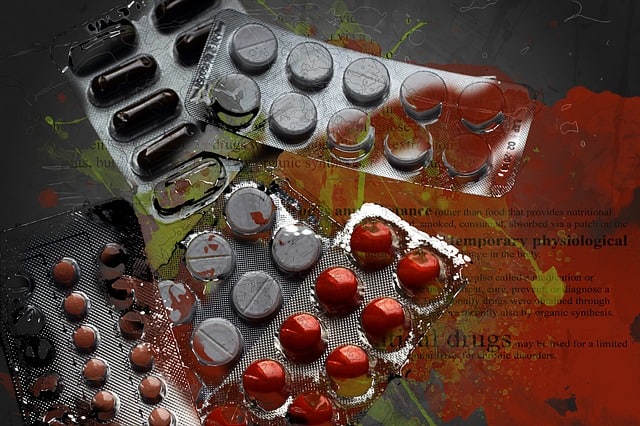Prescriptions—many of us deal with them every day, many of us take them every day, and we know many others who take them, too. Whether it is to deal with a mental or physical condition or to get over a common illness, we have all been under prescription medication at one point or another.
Chances are high that when you have been prescribed a medication in the past, you have been advised or warned by your doctor about something. They might instruct you what and what not to take with the medication, how much of it you should and should not take, or how long you should take it. There are likely to be several guidelines, and for good reason—many medications can become addictive under poor use or circumstances.
You will likely be warned of certain drugs to be especially careful with—some that are more addictive than others. These are the types of medical prescriptions you should watch out for when taking.
Stimulants
Prescription stimulants are medications used to increase alertness, attention, and energy in the user. Most stimulants come in ingestible forms, such as capsules, tablets, or even in liquid form, and they are typically orally ingested.
Stimulants like Ritalin and Adderall are generally used to take care of and help treat the symptoms of attention disorders. such as ADHD. or sleep disorders, like narcolepsy. They help make a more keen sense of attentiveness and alertness, hence the term “stimulant.”
When it comes to abuse, tablets and capsules are often crushed and then snorted, smoked, or even mixed into drinks or injections. In these cases, stimulants increase the production of dopamine and give a rush of energy and euphoria, making the user feel empowered and unstoppable once hooked. In the short term, your heart rate and blood pressure can go up, but with abuse can come headache, nausea, increased aggression, hallucinations, and paranoia.
Opioids
Opioids are a special class of drugs because they often contain ingredients and materials from that are used to make certain illegal drugs, such as heroin. This makes obtaining them difficult and getting them requires specific permission from a doctor. Opioids are often used to relieve severe pain from illnesses and medical procedures, meaning they do more than over-the-counter medications like Advil and Tylenol.
Some of the common types of opioids include oxycodone and codeine, which are used to alleviate pain and treat cold and flu symptoms. Using them creates a relaxed, euphoric effect that can be abused for both highs and mellowing out.
If you become addicted, you will likely suffer from opioid withdrawal. Withdrawal consists of symptoms of drug craving, irritability, excessive sweating, nausea, and chills.
CNS (Central Nervous System) Depressants
CNS (Central nervous system) depressants are a type of drug class that does exactly as described—they are medications to help calm the nervous system and other types of mental fever. They include sedatives, hypnotics, and tranquilizers that slow brain activity in order to treat general anxiety, panic attacks, insomnia, and severe stress.
These sedatives help create a sense of lethargy and drowsiness that keep the user calm and relaxed. Some of these medications include Alprazolam, Clonazepam, and Diazepam. They can create a feeling similar to drunkenness and relaxation from alcohol, making them all the more tempting to abuse.
But just like opioids, CNS depressant abuse can lead to major withdrawal symptoms and cravings with addiction and other harmful side effects, such as headache, nausea, and ironically, anxiety and insomnia. Though prescription drugs can be used to create artificial highs, there is a reason many require special permission from professional physicians—becoming addicted to them can be deadly.

If you or a loved one is concerned about potential prescription drug addiction, contact a local Alternative Treatment & Rehab program in Tennessee. You might also investigate Discovery Place’s own treatment center alternatives, such as our 30 Day Residential Addiction Recovery Program or our Long Term Recovery Program in Burns, Tennessee. Call us for a free consultation at 1-800-725-0922.

